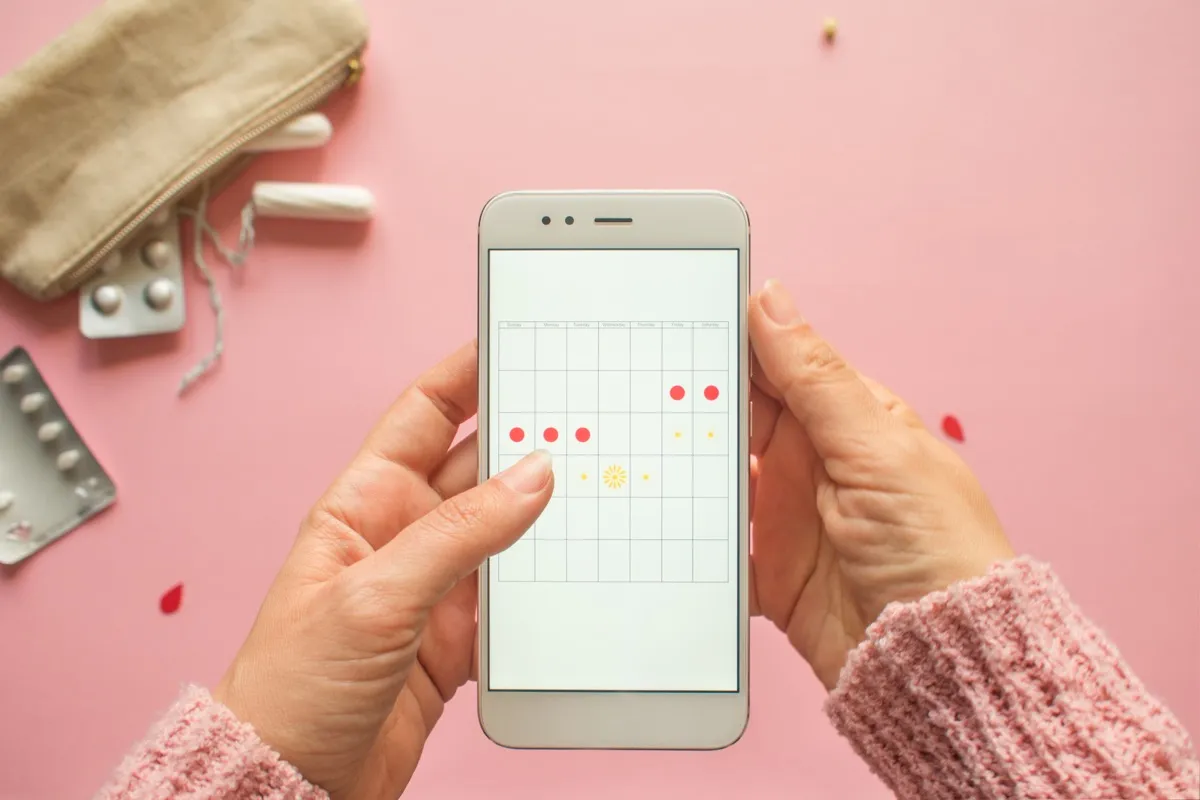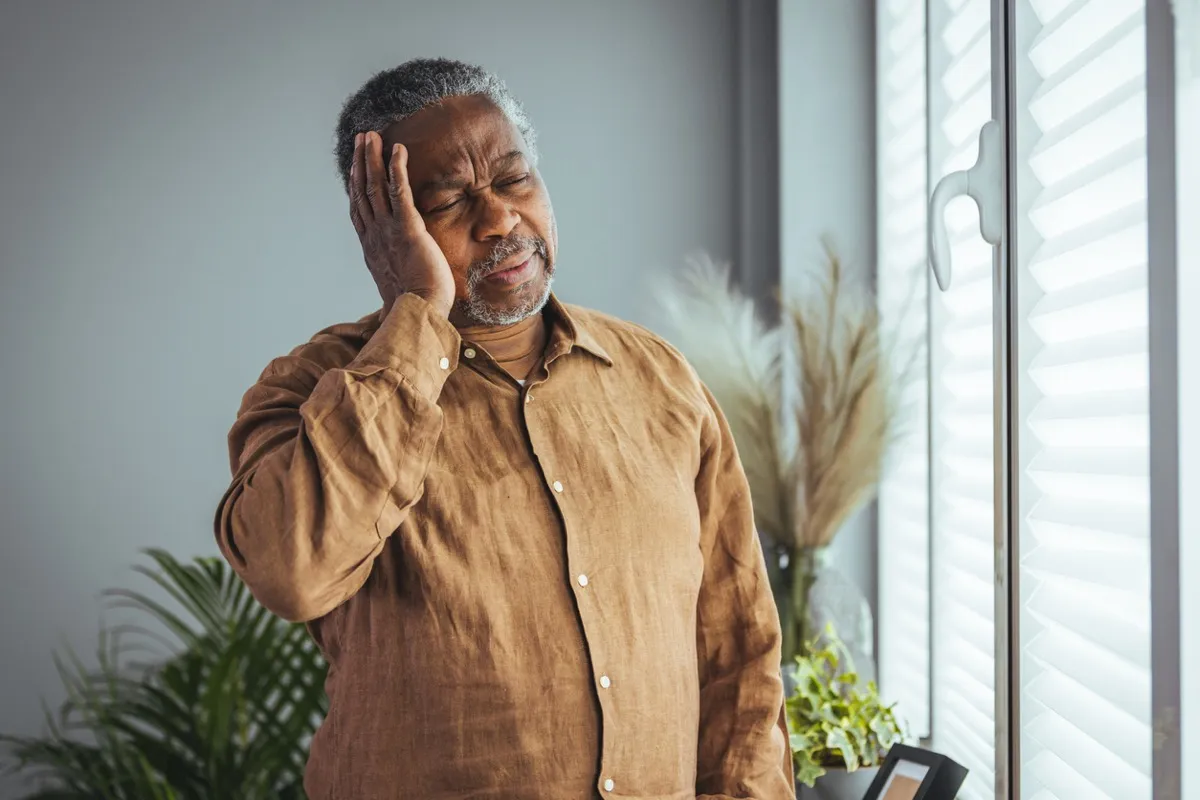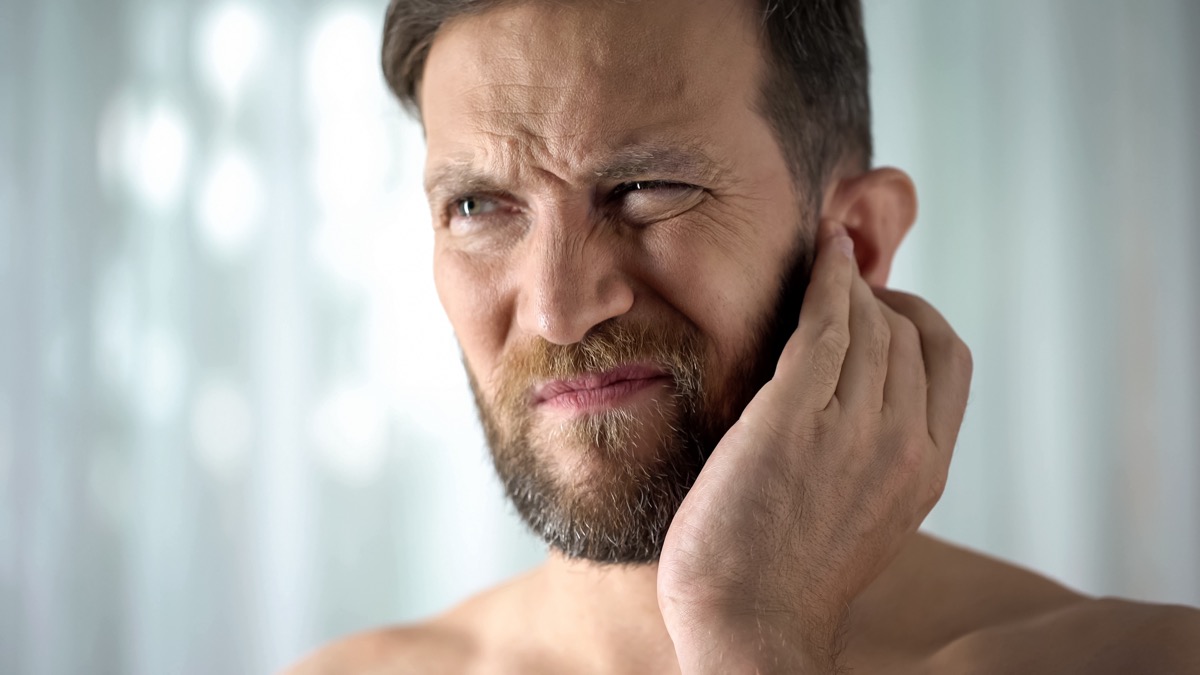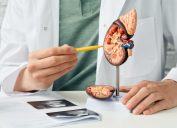8 Signs You're Not Getting Enough Iron, Doctors Say
If you notice these symptoms, it's time to request a blood test.

Iron is an essential mineral that your body uses to support growth and development, aid in the production of red blood cells, boost immune function, and more. If you have an iron deficiency, however, your body may not have the necessary iron levels to make a protein in the red blood cells called hemoglobin.
"Our body requires certain vitamins and minerals as building blocks for our health," explains Daniel Landau, MD, an oncologist and hematologist for The Mesothelioma Center. "Our hemoglobin cells, which function to carry oxygen throughout the body, require iron, B vitamins, and folic acid specifically."
Though iron deficiency is among the most common deficiencies in the world, Landau says that many people don't realize that their levels are low, which can cause a range of health problems. "When our body is low in iron, there are several things that can occur. This includes decreased production of red blood cells. When we have fewer red blood cells, the body cannot get oxygen in all the places that oxygen is required," he tells Best Life.
Because the body cannot produce iron, it's important to ensure that you get enough through your diet. "There are two types of iron in foods: heme iron and non-heme iron," explains the American Red Cross (ARC).
"Heme iron is found in red meat, poultry and pork and is most easily absorbed by your body. Non-heme iron is not as easily absorbed by your body but is still a good source of iron and essential if you don't eat meat. Foods that are high in this type of iron include greens, breakfast cereals fortified by iron, breads and pasta, tofu, beans, dried fruits and eggs," they note.
The best way to find out if you're not getting enough iron is to have your doctor run a blood test to check your complete blood count (CBC). However, doctors and dietitians say these are the other red flags that can help tip you off to an iron deficiency.
RELATED: 5 Signs You're Not Getting Enough Vitamin B12, Doctors Say.
1
You're fatigued.

When your body fails to produce enough hemoglobin and begins struggling to circulate enough oxygen throughout the body, this can cause iron deficiency anemia, which is known to take a toll on your energy levels. "Often, this makes people feel tired or fatigued," says Landau.
Emily Van Eck, MS, RD, a registered dietitian at Emily Van Eck Nutrition & Wellness, says this symptom often goes overlooked—especially in women: "Fatigue and iron deficiency are both quite common in women, but they are not always tied together, or can be missed or dismissed as something else."
2
You experience heavy menstrual bleeding.

According to University College London (UCL), some studies estimate that up to 90 percent of girls and women who experience heavy menstrual bleeding are also iron deficient. That's because heavy periods can cause excessive blood loss, which depletes your iron levels over time.
"For reproductive-aged women, the symptom of heavy menstrual bleeding is highly prevalent and a major contributor to iron deficiency and its most severe manifestation, iron deficiency anemia," says a 2023 study published in the American Journal of Obstetrics and Gynecology.
The researchers note that oftentimes, iron deficiency goes untreated in this population: "It is recognized that these two clinical entities are not only highly prevalent, but their interrelationship is poorly appreciated and frequently normalized by society, healthcare providers, and affected girls and women themselves."
RELATED: 5 Supplements That Can Damage Your Kidneys, Doctors Say.
3
You notice odd cravings.

Landau says that in some cases, people who are not getting enough iron will notice strange cravings.
"Low counts of red blood cells can cause an added strain on certain organs, such as the heart, which now has to pump harder and faster to compensate for the lower number of red blood cells. Additionally, the red blood cells that are produced in a person with low iron are smaller and less functional than red blood cells that are produced in a person with sufficient amounts of iron," he says.
As a result, "the body can go into a desperation mode, which can cause people to try and find iron in odd sources. This leads to Pica, which is a craving of non-traditional food items such as ice and dirt," he explains.
Stephanie Ooi, MBBS, MRCGP, a general practitioner and women's health advisor for the iron supplement brand Active Iron, agrees that this is typically a good indicator that it's time to request a blood test. "While the exact cause of Pica is not fully understood, it's often associated with nutritional deficiencies, including low iron levels," she says.
4
You're experiencing neurological or cognitive symptoms.

Van Eck says there are several ways that an iron deficiency can lead to neurological or cognitive symptoms. In particular, she says you might experience headaches, difficulty concentrating, and dizziness. "In children, anemia can result in irreversible cognitive impairment and difficulty learning," the dietitian adds.
However, it's important to note that these symptoms can be caused by a range of other underlying conditions. A doctor can help you determine if they are the result of an iron deficiency or something else.
RELATED: 12 Supplements You Should Never Take Together, Medical Experts Say.
5
You notice changes in your skin, nails, and hair.

"Another noticeable indication is pale skin and nail beds," says Ooi. "When iron levels are low, the body prioritizes oxygen delivery to vital organs, resulting in decreased blood flow to the skin. This can lead to a paler complexion and even brittle nails."
The Cleveland Clinic adds that some people with iron deficiency anemia may develop an itchy rash on their skin "that can become red, bumpy, and sore when scratched."
They note that researchers aren't sure how itching develops, but they say a leading theory is that low iron levels can cause the skin to become thinner. This leads to water loss which ultimately triggers an itching sensation.
According to the American Society of Hematology, "brittle nails or hair loss" are also considered symptoms of iron deficiency anemia.
6
You're experiencing a rapid or irregular heartbeat.

Developing a rapid or irregular heartbeat can also signal that you're not getting enough iron. "Severe anemia can impair heart rhythms and even cause heart attack," Van Eck tells Best Life.
The Mayo Clinic explains that this can occur in severe cases of iron deficiency anemia because "your heart must pump more blood to compensate for the lack of oxygen carried in your blood when you're anemic. This can lead to an enlarged heart or heart failure."
RELATED: 7 Supplements That Can Make You Nauseous, Doctors Say.
7
You hear a "whooshing" sound in your ears.

When your heart rate changes as a result of not getting enough iron, you may actually be able to hear that subtle difference. Low iron levels are associated with pulsatile tinnitus, which can cause you to hear a "whooshing" sound in your ears that coincides with your pulse.
If you notice this symptom, do not try to treat it at home by increasing your iron levels alone. "Pulsatile tinnitus must be reported right away as it might indicate a serious heart condition," says Hoffman Audiology, a medical group that treats hearing conditions in Irvine, California.
8
You notice shortness of breath or chest pain when exercising.

Having shortness of breath or chest pain during or after exercising can indicate a serious heart condition, so it's crucial to seek immediate medical assistance if you experience a severe or prolonged set of symptoms. However, after ruling out more serious conditions, your doctor may want to check your iron levels to determine if they're low, says Ooi.
"Experiencing shortness of breath, especially during physical activity, is a common symptom [of iron deficiency]. Without enough iron to support oxygen transport, the body struggles to meet the increased demands for oxygen during exercise, leading to breathlessness," she explains.
If you believe you're not getting enough iron, track your symptoms and share your concerns with your doctor. They may recommend increasing your dietary iron intake or taking iron supplements, but as Van Eck points out, it's also "important to treat any underlying condition that was causing the low iron in the first place."
Best Life offers the most up-to-date information from top experts, new research, and health agencies, but our content is not meant to be a substitute for professional guidance. When it comes to the medication you're taking or any other health questions you have, always consult your healthcare provider directly.
- Source: American Red Cross: The Importance of Iron in Your Body
- Source: American Journal of Obstetrics and Gynecology: The relationship between heavy menstrual bleeding, iron deficiency, and iron deficiency anemia
- Source: Cleveland Clinic: Anemia Rash
- Source: American Society of Hematology: Iron-Deficiency Anemia
- Source: Mayo Clinic: Iron deficiency anemia





















